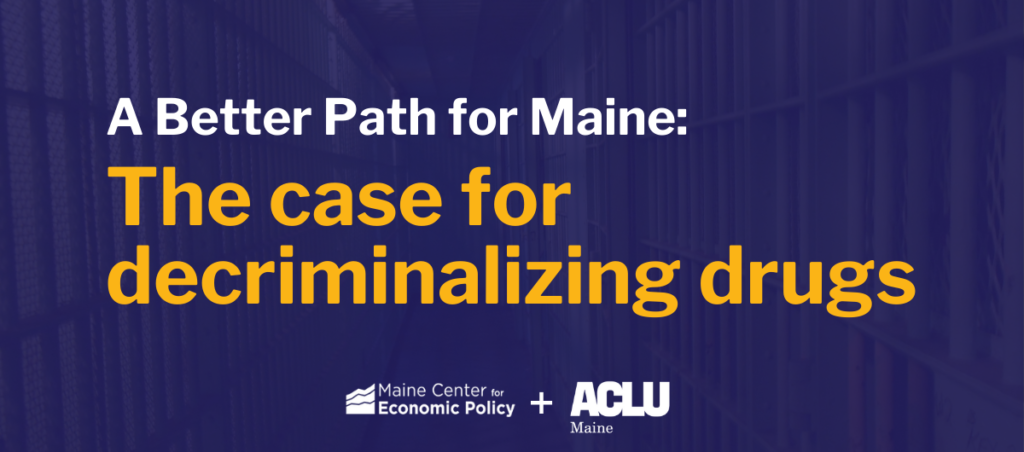Maine spends $111 million to punish people for using drugs. The return on this investment: record shattering overdose deaths, thousands of people held back from reaching their full potential because of criminal records, widespread constitutional violations, disrupted lives and disrupted communities.
These are some of the findings of our new report in partnership with ACLU of Maine, A Better Path Forward for Maine: The Case for Decriminalizing Drugs. The report details the enormous social and economic costs of criminalizing people who use drugs.
The report’s central recommendation is for Maine to decriminalize drugs while moving toward and investing in proven and cost-effective public health approaches to drug use. Among the issues highlighted in the report:
- The enormous and wasteful financial cost of criminalizing people for drug use. These financial costs are borne by state and local governments and by the individuals who are criminalized and their family members. Investment in public health alternatives is both more effective and more financially sound. For example, a year in state prison costs $54,300. This is more than twice as much as it would cost to provide housing, weekly counseling and medication-assisted treatment for a year at current MaineCare reimbursement rates.
- The harrowing personal costs to people who are criminalized for drug use. The report features testimony from people with lived experience of drug use and incarceration. Interviewees in the report describe self-medicating to manage mental health and trauma, losing loved ones to overdose deaths and the barriers to recovery they face because of a legal regime that criminalizes drug use.
- The criminal legal system is not the appropriate setting for what is fundamentally a matter of public health. Drug use must be addressed through the paradigm of public health which focuses on individual and community well-being, not through the paradigm of criminal law, which focuses on punishment. Because drug use is dealt with in a criminal law paradigm, law enforcement officials are given inappropriate power over people’s health care decisions. Police, prosecutors, judges and probation officers often make judgments about the medical treatment of criminal defendants — including overriding the clinical decision of health care providers.




